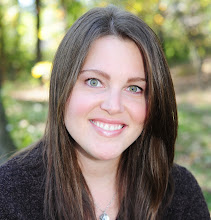In the days, months, and years that have passed since that night, I've become an unofficial advocate for kids' food allergies. Not only did I have to fight for a proper diagnosis, but once we received it, I've had to work to keep my son safe. Every. Single. Day. My biggest weapon: education. I quickly had to educate not only myself about his condition, but my husband and daughter, our family, friends, teachers, babysitters, medical professionals, and anyone that interacts with our son. Most importantly, as my son has grown, I've also had to educate him.
Through all of this---at the wise age of three---my son has learned that he's different from most other kids. After all, most kids can go trick-or-treating and eat the candy. Most kids can have cupcakes at their class party. Dinner out at a restaurant. A donut on National Donut Day. Most kids don't have to BYOB (Bring Your Own Brown-Bag) to birthday parties, weddings, and any other social function where food may be served. Most kids don't have to sit in a "special" seat when they eat snack and lunch at preschool. Most kids don't have to ask with a trusting but scared voice, "Mommy, does that have milk in it?" or "Can I have that?" before they take a bite of food in fear of becoming sick.
As I've educated my son on FPIES using Narrative Parenting, it's allowed us to embrace what it means to be different. To be special. Maybe your child is different too. Maybe it's a food allergy. Or maybe it's ADHD. Autism. Aspergers. Dyslexia. A leg brace. A hearing impairment. Maybe your child has a physical challenge, or a learning disability. Whatever it is---big or small---that makes your child different from most. As our children grow, we want them to be different. We want them to develop into unique, dynamic individuals. But... when they're small, sometimes---as parents---we just want them to be like everyone else. We want them to fit it; to feel unconditionally included. Or at the least, we never want them to feel the pang of feeling excluded. From a special snack, to a game of tag on the playground, to a mainstreamed classroom in elementary school.
Thought for today: If your child is "different," chances are you already know everything there is to know about his or her difference. My parenting challenge to you today is together with your child, reach out to someone else who may feel excluded. Not sure where to start? Talk to your child's teacher or summer camp counselor. See if there is someone in your child's class or school who could use a friend. Maybe they're like my son and have a food allergy. If so, learn of a safe snack that you can bring to the next school function. Maybe they're having trouble academically and need a study-buddy. Maybe they're shy and need a pal on the playground. Have your child brainstorm ways they can be a better friend, one who can make a difference.
Practicing What I Preach: Between the ages of two and five, children begin to incrementally notice differences. Whether it's gender, race, or size -- kids notice and seek explanations as they become more acutely aware of how they differ from others (and how others differ from them). With practice and patience (and a few embarrassing outtakes -- even now), I've tried to teach my kids that it's okay to be different. If they notice someone "different" or "unique" when we're out in public, wait and bring it up to me (or their dad or grandparent) in private. We don't stare, we don't point, we don't yell descriptives, and we don't hurt feelings. For example, my daughter may ask on the car ride home about someone she saw in a wheelchair. Or a lady without hair. By encouraging discussion, we've had the chance to talk about embracing many differences while also talking about being polite and inclusive of others.







No comments:
Post a Comment